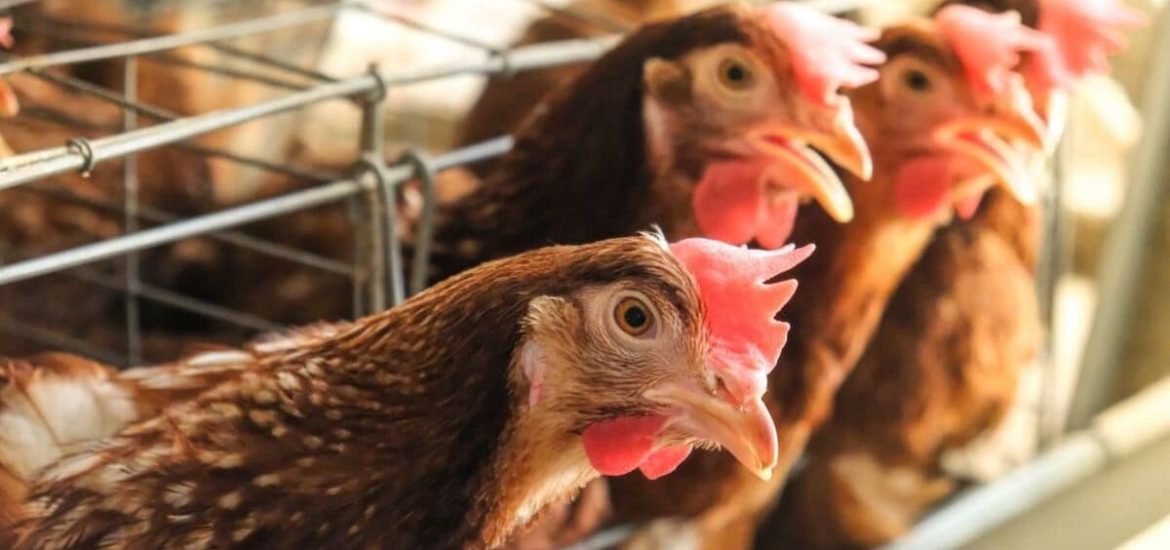
Antimicrobial resistance among farm animals is on the rise in developing countries according to a new paper published on 19 September in Science (1). Moreover, the widespread reliance on and growing resistance to antimicrobials will not only impact the sustainability of intensive food production systems but could potentially affect human health. Thus, governments and policymakers should take urgent and coordinated global actions against the rising threat of antibiotic resistance among livestock, the authors write.
Since 2000, there has been a dramatic rise in global demand for animal protein has led to increases in meat production of up to 68 per cent in Asia, Africa, and South America – despite demands plateauing in high-income countries. Antimicrobials are routinely used in the livestock industry to maintain the health and productivity of farm animals.
Typically, antibiotics are used to prevent infection and disease — especially in crowded conditions — but they are often used indiscriminately to aid weight gain and increase profitability. As a result, the common practice of antibiotic use — more than 70 per cent of antibiotics are used in animals raised for food — has led to the rise of antimicrobial-resistant infections, not just in animals but in some cases, in humans too.
Although antibiotics have proven to be life-saving, overuse — in both people and animals — has led to dangerous antibiotic resistance, which has become one of the biggest threats to global health, according to the World Health Organization (WHO). And the proportion of bacteria resistant to antimicrobials is rapidly increasing.
In low and middle-income countries, antimicrobial use is often less regulated and indeed, less well documented than in wealthier countries with established surveillance systems. So, to address the scarcity of data on antimicrobial resistance in the developing world, the researchers used geospatial models to produce global maps of antimicrobial resistance in low to middle-income countries.
The study, led by Prof Thomas Van Boekel at ETH Zurich, was based on 901 epidemiological studies conducted in developing nations and focused on four common types of bacteria: Salmonella, Campylobacter, Staphylococcus, and E. coli.
Antimicrobials with the highest resistance rates included tetracyclines, sulfonamides, quinolones and penicillins that are mainly used in animals to help them gain weight, the authors report. And in some regions, these compounds have almost completely lost their ability to treat infections.
“This alarming trend shows that the drugs used in animal farming are rapidly losing their efficacy,” says Van Boeckel.
In addition, the researchers identified several “hotspots of resistance” mainly in India and Northeast China, as well as Pakistan, Iran, and Turkey, and pockets of resistance emerging in Kenya, Uruguay, and Northeastern Brazil. Importantly, some of these resistance hotspots export large quantities of animal produces — thousands of tonnes per year — so even if the use of antibiotics is controlled in one country, imported meat may not be produced using the same standards.
The maps are by no means a complete picture since there is still a lack of publicly available data, for example, in large areas of South America. Nevertheless, the authors urge governments in the most affected regions to take immediate actions to preserve the efficacy of antimicrobials.
As Van Boecklel explains, “Antimicrobial resistance is a global problem. There is little point in making considerable efforts to reduce it on one side of the world if it is increasing dramatically on the other side.” Therefore, high-income nations must do more to promote safer farming practices in regions where resistance is rising.
The team have made their findings publicly available on an open-access web platform, and where additional data on resistance from veterinarians and state-authorities can be shared.
(1) Van Boeckel, T.P. et al. Global trends in antimicrobial resistance in animals in low- and middle-income countries. Science (2019). DOI: 10.1126/science.aaw1944